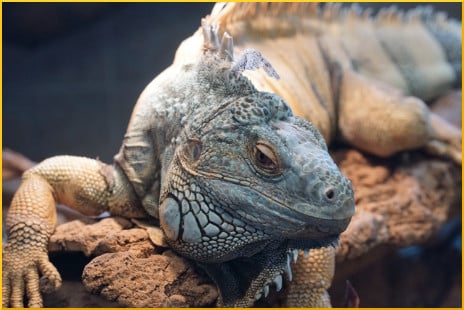
The base brain, or lizard brain, has a one-track mind. Its mantra is, “What do I want? A reward! When do I want it? Now!” The trouble is, when an addictor is involved, that idealized reward will never come again. It’s not repeatable, but the unintelligent lizard brain will relentlessly “chase the dragon,” vainly trying to recapture the bliss of the first time.
In pursuit of that unachievable goal, the lizard brain will buddy up, slap you on the back, and imply that you and it are teammates, colleagues, or best friends.
“We should have just one little drink,” it says jovially. When a person considers escape from addiction, old Lizard Brain has a whole arsenal of traps, which John McC has exhaustively catalogued, and these are only a few:
I’m under too much stress to quit right now.
I don’t have to really quit; maybe just cut down a little.
Everybody deserves to be able to relax once in a while.
I suffer from mental illness, so I am entitled.
Things aren’t that bad.
It would be more stress on my body to quit than to continue doing it.
But it’s free! How can you resist when it’s free?
Oh well, when in Rome, do as the Romans do.
Alcoholics Anonymous co-founder Bill Wilson hung onto his nicotine addiction with the grand, all-encompassing excuse: “Frankly, I’m not ready to quit just now.” This was bolstered by the assertion that nobody (his wife, in this case) should nag a person about a little thing like cigarette smoking when he was so successful at resisting his main addiction, alcohol.
The corollary to this is, as a prize for nobly eliminating the most troublesome addiction, you actually deserve to hang onto a secondary addiction. Don’t fall for it!
Crazy like a fox
Despite its basic stupidity, the lizard brain has a way of enabling the higher brain to invent some pretty fancy justifications. For instance, it promotes the Big Sendoff theory. If you really are going to quit, old Lizard Brain sells the idea that you deserve to end your addiction with a grand, memorable binge. Then, when that monumental blowout occurs, somehow it turns out not quite good enough to count — so the best thing to do is carry on until a truly worthy goodbye party can be arranged.
In certain fields where part of the job entails entertaining clients, the career disaster rationalization is popular. It goes like this: “If I don’t drink (or smoke, or order the richest dish on the menu) my clients who drink (or smoke, or gourmandize) will feel uncomfortable, as if I’m judging them or something. Better not rock the boat, because I need this job.” Somehow, the elemental lizard brain convinces the higher brain to forget about all the damage that maintaining the addiction will cause to career and life.
The list goes on
“The doctor is just trying to scare me” is an attractive self-deception. So is this one: “My parents messed me up so bad, I’ll never achieve emotional health anyway. By retaining this addiction at least I’ll have something.”
Sometimes, the family can be called upon as unwitting accessories. “My father ate chocolate-covered bacon every day until he was 80,” an addict will stoutly assert. “If it was good enough for Dad, it’s good enough for me. What kind of a son would I be if I rejected his ways?” Yes, this kind of thinking is the epitome of absurdity. But the lizard brain will encourage the higher brain to try every trick in the book.
“It’s a special occasion! It has to be properly observed — with a drink or six!” This ever-popular rationalization calls for celebration if the team wins, or consolation if the team loses. It works with food, too. When a person believes that a special occasion calls for a binge, suddenly the calendar is full of special occasions. Magically, every day becomes a holiday!
Your responses and feedback are welcome!
Source: “The Lizard Brain Addiction Monster,” orange-papers.org, undated
Source: “The Funny Spirituality of Bill Wilson and A.A.,” orange-papers.org, undated
Photo via VisualHunt

 FAQs and Media Requests:
FAQs and Media Requests: 











